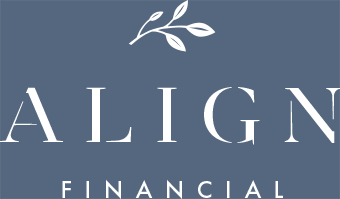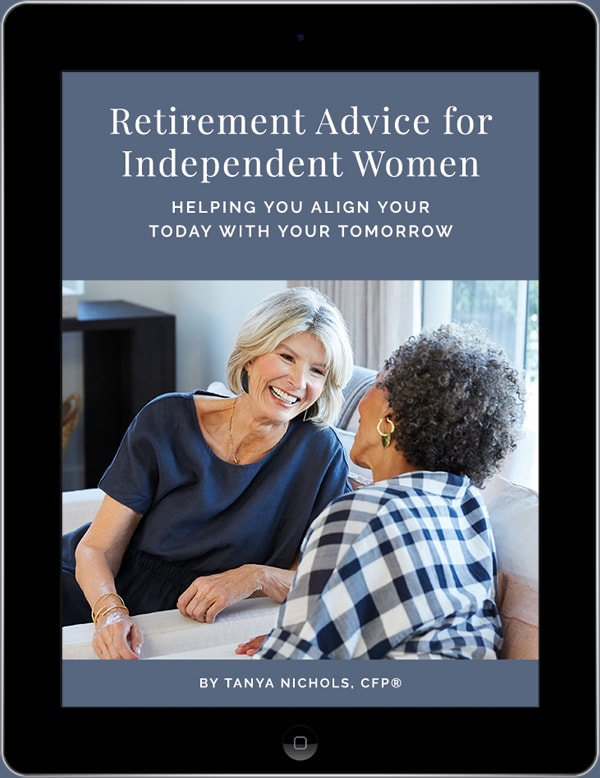What does “self-care” mean to you? Personally, I think the term has become a bit overused, encompassing everything from an afternoon of shopping to an all-day Netflix binge. (Both activities, by the way, may be completely necessary to refuel the tank once in a while.)
Nevertheless, it’s easy to confuse self-indulgence for self-care, and this can be a slippery slope–especially when it comes to our finances. Not that financial self-care needs to feel restrictive, either. In this article, I’m sharing ways you can practice financial self-care to feel good about your money without sacrificing the things that bring you joy.
What is Financial Self-Care?
Generally speaking, self-care is the practice of actively preserving and improving one’s own health, wellbeing, and happiness. Financial self-care has largely similar goals. In my opinion, financial self-care means making decisions with your money that feel congruent with your values and the life you desire–not the life you think you should have or that others want for you.
Financial self-care looks different for everyone. That being said, the practices I’m sharing will help you create money habits that improve your overall financial wellness, no matter your definition of success.
Financial Self-Care Practice #1: Mindfulness
Research shows that nearly all of our brain activity is at the unconscious level. In other words, we spend most of our time on autopilot, letting old beliefs and patterns dictate our actions. And since many of us have unconscious, limiting beliefs about money, it’s easy to see why so many people don’t have the financial life they want.
Practicing mindfulness allows us to break this unhealthy cycle. At Align Financial, that means working with our clients to bring unconscious beliefs and patterns to the surface and create new habits that are in alignment with the life they want. You can practice mindfulness on your own by taking an honest look at what’s important to you and whether your current money habits support that vision.
First, you need to get clear on your values. Values are the things you believe to be important, that tend to guide your priorities and decisions. When our financial decisions are in harmony with our core values, we tend to feel happier and more fulfilled. Unfortunately, many people never do the work of understanding what they value and why.
Clarifying Your Values
The Life Values Inventory is a free online tool that can help you clarify your personal values. You can go through this exercise on your own, or if you prefer, with a trusted friend, family member, or advisor. Just make sure you don’t let anyone else’s opinion influence your responses.
Once you’ve identified your set of core values, compare them to your money habits. You can look at credit card statements, contributions to savings or investment accounts, and other decisions you’ve made with your money to see how well they match what’s important to you.
For example, if one of your core values is security and you don’t have much in savings, you might have a mismatch. Or maybe you’re overspending on things that don’t contribute to your wellbeing or happiness. Simply being aware of these mismatches can help you adjust your habits to better reflect the life you want.
Financial Self-Care Practice #2: Intention
Now that you know what’s important to you, you can turn off autopilot and begin to make conscious choices that support the life you want. In other words, you can spend, save, and invest your money more intentionally. But first, you need to set some goals.
Financial goal-setting isn’t as intimidating as it may sound. When I ask my clients to think about their financial goals, I simply ask them to describe their ideal life in retirement and what milestones they want to achieve along the way. For instance, they may dream about buying a second home in their favorite vacation spot. Or perhaps they want to retire before age 65 so they can travel the world while they’re still healthy and active. These are examples of financial goals.
You can go through a similar exercise to set financial goals for yourself. Maybe your goals are shorter-term in nature, like you want to pay off your credit card debt this year so you can contribute more to savings. They don’t have to be big, lofty goals; you just need to give yourself something to work towards and a plan to get there.
Practicing intention is nothing more than ensuring your actions have a purpose. And when you know the “why” behind your actions–i.e., your values and goals–you may find it’s easier and more fulfilling to make healthy financial decisions.
Financial Self-Care Practice #3: Accountability
As human beings, we have an innate ability to rationalize our decisions–especially the bad ones. Even when we know we’re making a bad choice, we want to believe that the logic behind it is sound so we feel justified. (We’ve all felt our reasoning skills kick into overdrive when we don’t feel like going to the gym after a long day of work.) Since it’s just as easy to rationalize away bad money decisions, practicing accountability is critical for financial success.
Although learning how to practice financial self-care may inspire you–you may even be motivated to put these practices into action right away–eventually you’ll start to lose steam. Maybe you don’t have time to meal prep one week, and all of a sudden you’re picking up takeout every night. Or even though you’re trying to cut back on frivolous purchases, the boots you’ve been eyeing forever finally went on sale, and really you’ll be losing money if you don’t buy them now.
We’ve all been there. There’s no shame in backsliding a bit. But when those inevitable temptations and setbacks occur, having an accountability system can make all the difference. If you’re not sure what that looks like for you, I’ll give you a few examples of systems that have worked for me.
Track Your Progress
Whatever your goals may be, keep track of your progress and review it often. Sometimes the simple act of writing something down and seeing it in black and white is enough to keep yourself honest. If you’re trying to spend more intentionally, for example, track your spending for a while to make sure it remains aligned with your priorities and values. Or if your goal is to save more, track what percent of your income you’re able to set aside each month. Having a visual reminder of your progress can be motivating, whether you need to stay the course or right the ship.
Find an Accountability Buddy
If you’re private about your money, don’t worry. Having an accountability partner doesn’t mean you have to share all the details of your financial life with them. For example, if your goal is to pay off your credit card debt, you don’t have to reveal how much debt you have. Rather, you can say you’re trying to cut back on spending for the next three months. Just don’t stop at simply sharing your goal. Research shows that telling someone your goals creates a feeling of achievement, which makes you less likely to follow through on your intention.
Personally, I like to put some skin in the game. Usually the potential downside of not achieving my goal is enough to motivate me to follow through. However, you may find a reward system to be more motivating. Regardless of what drives you, make sure your accountability buddy is someone you can trust to support you and exercise tough love when necessary.
Hire a Coach or Advisor
We all have questions, insecurities, and blind spots in certain areas of our lives. If yours is personal finance, you’re not alone. In fact, the financial literacy rate among adults in the U.S. is only 57%, according to Standard & Poor’s Global Financial Literacy Survey.
Most of us aren’t given the tools at a young age or even as adults to make smart choices with our money. So naturally, you might not feel completely confident when it comes to managing your finances and planning for a secure future. A financial coach or advisor can help answer your questions, point out your blind spots, and importantly, hold you accountable for your habits and decisions so you can achieve your goals.
Financial Self-Care Practice #4: Gratitude
In positive psychology research, gratitude is strongly and consistently associated with greater happiness, more fulfilling relationships, and better health. Since it’s no doubt critical for overall self-care, I believe gratitude is an important component of financial self-care as well.
You’ve probably heard the saying, “What you appreciate, appreciates.” Or put differently, what you focus on expands. When you’re grateful for what you have, you begin to develop an abundance mindset–a belief that there’s plenty out there for everyone as opposed to life being a zero-sum game. Having this mindset also allows you to see more possibilities for your life. In addition, you’re likely to recognize resources that you otherwise would have ignored.
If I’m starting to lose you, stay with me a little longer. While I can’t provide a direct link between practicing gratitude and financial success, I encourage you to give it a try anyway. Oftentimes a simple shift in mindset is all we need to get out of our own way and start seeing positive results. Try keeping a gratitude journal or spending a few minutes before dinner each night sharing what you’re grateful for with your family, and see if your life starts to change in unexpected ways.
What Does Financial Self-Care Look Like for You?
You now have my big four–mindfulness, intention, accountability, and gratitude–to set yourself on a path to financial wellness and success. My hope is that you can apply these practices to your financial self-care routine regardless of your current financial situation or goals and start to see results.
As you go through these exercises, take note of what works for you and what doesn’t. If something doesn’t click into place right away, don’t beat yourself up–they are called practices for a reason. And don’t forget to celebrate your wins along the way–even the seemingly small ones. It’s these small, consistent improvements over time that ultimately help us achieve our biggest goals.
Finally, don’t go it alone. For many people, money can be a source of stress, anxiety, and even shame. Make sure you have a good support system, and if you need help, don’t be afraid to reach out to someone you trust. As always, if I can support you in any way, please get in touch.













